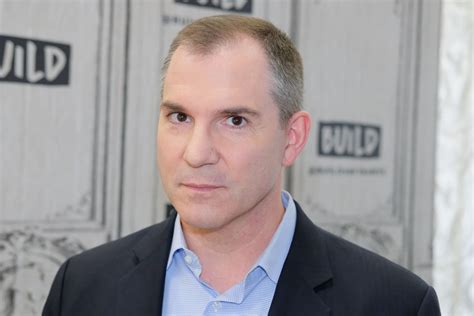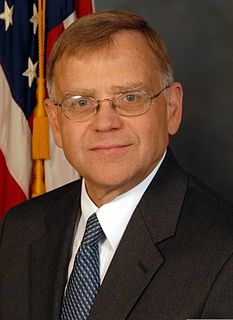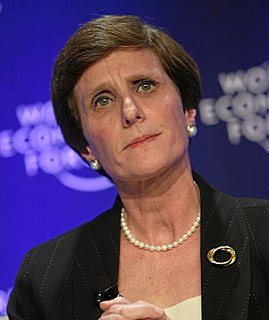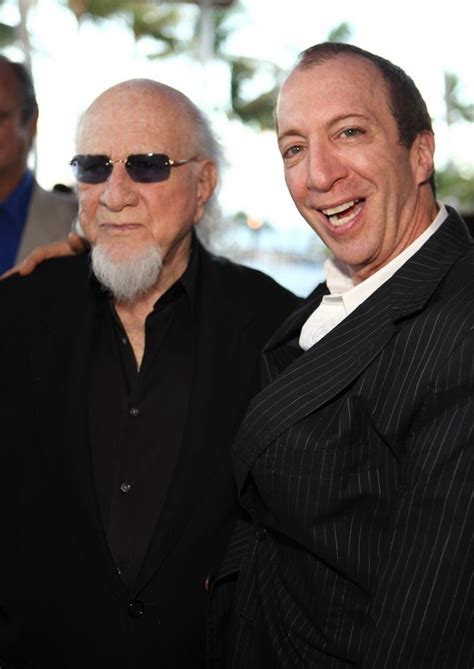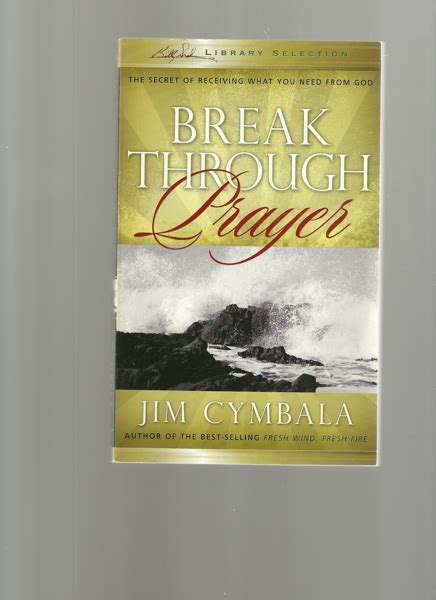Top 1200 Consumers Quotes & Sayings - Page 20
Explore popular Consumers quotes.
Last updated on April 17, 2025.
I felt like Twitter was more of a place for people to just socialize instead of promoting. After I got off, I realized I could have used that energy and that lane to really promote some positivity. I had 35,000 followers before I left. I was like, "Damn those were 30,000 consumers." It kind of twisted my whole thought process so I got back on. I realized that I have a voice that people wanted to hear.
If Earth is considered a closed system, there will be less for all forever. The frontier is closed, the wilderness is gone, nature is being destroyed by human consumers, while billions are starving. The future indeed looks grim, and there are, ultimately, no really long-range, positive solutions, nor motivation for making the sacrifices and doing the hard work needed now, unless we understand that we are evolving from an Earth-only toward an Earth-space or universal species.
I just think we as consumers of information media must be very clear what it is we are consuming. Whether we are choosing to get our information by listening to people fight about it. Or whether we're choosing to get it by listening to the facts or watching the facts as they're laid out and then reaching our own conclusions. It's very different ways of info gathering, but it's not all journalism.
I believe we are a species with amnesia, I think we have forgotten our roots and our origins. I think we are quite lost in many ways. And we live in a society that invests huge amounts of money and vast quantities of energy in ensuring that we all stay lost. A society that invests in creating unconsciousness, which invests in keeping people asleep so that we are just passive consumers or products and not really asking any of the questions.
A strong currency means that American consumers and businesses can buy imported goods and services more cheaply and that inflation and interest rates will be lower, ... It also puts pressure on American industry to increase productivity and competitiveness. These benefits can feed on themselves as foreign capital flows in more readily because of greater confidence in our currency. A weak dollar would have the contrary effects.
I am expecting that consumers are going to continue and exert power and influence. The idea of radical transparency is something that few brands are taking advantage of now, and most brands fight it. I’d say that in 10 years the best brands won’t be those with the best stories, sort of made up fictional stories, but those that will give an accurate and real time picture of what they are doing in the interest of the consumer, in any given time.
If that hideousness came here, it wouldn't be any more hideous for the animals — they are all bound for a ghastly death anyway. But it would wake up consumers... I openly hope that it comes here. It will bring economic harm only for those who profit from giving people heart attacks and giving animals a concentration camp-like existence. It would be good for animals, good for human health and good for the environment.
Part of what the food industry does with public relations, just like the chemical industry or the oil industry, is to try to erase their fingerprints from their messaging. So when consumers hear about a recent effort like the "food dialogues" put on by a group called the US Farmers and Ranchers Alliance, do they know necessarily that these "dialogues" are being funded by companies like Monsanto, a large chemical company and the controller of most of the patents on genetically modified seeds? No, they don't.
The fact that we all leave behind seemingly insignificant clues behind ourselves - emotional DNA or what I call Small Data - which are able to describe with an insane accuracy who we really are, our personalities and desires. But even more how we all represents out of balances - perhaps I feel too overweight, feel alone or feel I haven't achieved what I'd hoped for when hitting 40. These imbalances are surprisingly visible when visiting consumers' homes - and surprisingly invisible when relaying on Big Data.
The [liberals] consider profits as objectionable. The very existence of profits is in their eyes a proof that wage rates could be raised without harm to anybody. They speak of profit without dealing with loss. Profit and loss are the instruments by means of which the consumers keep a tight rein on all business activities. A profitable enterprise tends to expand; an unprofitable one tends to shrink. The elimination of profit renders production rigid and abolishes the consumer's control.
A curious mind does not say to consumers "What do you want?" A curious mind understands context, understands behavior, understands spending and spending patterns - the accumulation of a day's purchases, or spending over a week or a year. A curious mind asks the questions that open up the consumer to talk about her latent dissatisfactions, hopes, wishes, and dreams.
I think with Donald Trump we're seeing the sort of utterly vanished line at long last of enter - between entertainment and politics. I mean there's always been an enormous dose of entertainment in politics. Trump has completely erased that line but the Trump phenomenon when it comes to where the media's culpability is how much we should be beating ourselves up, that's a complicated question because one of the distinctive features of our era is we know exactly what consumers are doing almost in real time.
Stated in the simplest terms, the recognized solution to the problem of foodborne illness is a comprehensive prevention strategy that involves all participants in the food system, domestic and foreign, doing their part to minimize the likelihood of harmful contamination. And that is the strategy mandated by FSMA. It is not a strategy that assumes we can achieve a zero-risk food supply, but it is a strategy grounded in the conviction that we can better protect consumers and the economic vigor of the food system if everyone involved implements reasonably available measures to reduce risk.
The response by agribusiness interests has been to back laws that ban animal advocates from taking pictures or videos at these facilities, and ban the media from publishing any that are taken. The laws also make it a crime for animal advocates to seek employment at animal enterprises without disclosing their intentions. Media coverage of the legislative fights is overwhelmingly negative for agriculture interests. The impression left among consumers is that the proponents had something to hide.
Getting the economy back on its feet is properly viewed as an investment in future prosperity. When businesses and consumers confront attractive investment opportunities, often the only way to seize them is by borrowing. The same is true for government. Contrary to the pronouncements of critics of economic stimulus, these investments will not impoverish our grandchildren. Continuing to allow the economy to languish in recession is the surest way to impoverish them.
As businessmen caught a glimpse of the potentialities inherent in endlessly expanding the wants of people under consumerism, forced draft or otherwise, many began to see blue skies... What was needed was strategies that would make Americans in large numbers into voracious, wasteful, compulsive consumers-and strategies that would provide products assuring such wastefulness. Even where wastefulness was not involved, additional strategies were needed that would induce the public to consume at ever-higher levels.
The production of knowledge in schools today is instrumental, wedded to objective outcomes, privatized, and is largely geared to produce consuming subjects. The organizational structures that make such knowledge possible enact serious costs on any viable notion of critical education and critical pedagogy. Teachers are deskilled, largely reduced to teaching for the test, business culture organizes the governance structures of schooling, knowledge is viewed as a commodity, and students are treated reductively as both consumers and workers.
We had learned how to invent things, and the question of why we invent things receded in importance. The idea that if something could be done it should be done was born in the nineteenth century. And along with it, there developed a profound belief in all the principles through which invention succeeds: objectivity, efficiency, expertise, standardization, measurement, and progress. It also came to be believed that the engine of technological progress worked most efficiently when people are conceived of not as children of God or even as citizens but as consumers-that is to say, as markets.
The pace of change for entrepreneurs is rapidly accelerating, and the cost and risk of launching a new business and getting off the ground is just amazing. The ability to gain user feedback really quickly and adapt to what your consumers want is totally different with the web as it is now. But finding a new market, helping people and taking that original idea and turning it into a business is really exciting right now.
The rules of engagement around building a brand have changed significantly over the past 10 to 15 years. Where companies at one time could spread their message through traditional marketing, consumers now seek an enduring emotional connection with the companies they patronize. The foundation of that connection is the most important characteristic of building a world-class brand: trust. Trust with your people and trust with your customers.
The current U.S. and Eurozone depression isn't because of China. It's because of domestic debt deflation. Commodity prices and consumer spending are falling, mainly because consumers have to pay most of their wages to the FIRE sector for rent or mortgage payments, student loans, bank and credit card debt, plus over 15 percent FICA wage withholding for Social Security and Medicare actually, to enable the government to cut taxes on the higher income brackets, as well income and sales taxes.
The fast growing markets - the BRICS and Next Eleven - are the key. The next billion consumers are not going to come from the US or Western Europe - they are coming from Asia, Latin America and Africa. Formula One follows our strategy: fast growing markets, data, and digital. All those three things Formula One has. And it involves a stunning array of companies. Now that doesn't mean there can't be more.
The Middle East would always be an important trading partner in just a market sense, like America is a big market for us, Asia is a big market, Europe is a big market. You are going to have hundreds of millions of consumers there, from just a standard market point of view, from a very narrow American point of view.
Microsoft first entered the living room with Ultimate TV way back in 2000 - a year before Apple's first iPod was announced. Ultimate TV offered consumers a DVR and supporting online services, including 14 days of programming and the ability to record 35 hours of programming. Microsoft's reach was then thwarted when Echostar acquired DIRECTV.
To build and sustain brands people love and trust, one must focus-not only on today but also on tomorrow. It's not easy...but balancing the short and long term is key to delivering sustainable, profitable growth-growth that is good for our shareholders but also good for our consumers, our employees, our business partners, the communities where we live and work, and the planet we inhabit
If India is an emerging economy with millions of new consumers, sell them the Volvo. Sell them the Cielo car. Sell them whatever you can, hamburgers and KFCs. It?s the middle classes who have moved into being able to own a car, a refrigerator. For them there is this mantra that the General Electric refrigerator is better than some other model, that the Cielo car is fancier than the Ambassador.
Christian audience, I think, have grown very tired of movies that try to pander to them. For instance if someone goes, "Ok, we're designing what we're going to do with this movie. It's a Christian movie and they'll eat it up." And you know what? Consumers are smarter than that. They go, "The movie isn't that great and he thought that I would just be a sucker and plop my $10 down for it?" Because you're looking down at the audience. You can't pander to an audience.
The Bankruptcy Reform Act of 2005 made it harder for individuals to file bankruptcy, which is always the last resort. Unfortunately, simultaneously consumers racked up so much debt that counseling companies - which are higher up on my list if you need help managing your debt - are sometimes unable to help. So if you fall into this camp, debt settlement may be something to consider.
England was killed by an idea: the idea that the weak, indolent and profligate must be supported by the strong, industrious, and frugal – to the degree that tax-consumers will have a living standard comparable to that of taxpayers; the idea that government exists for the purpose of plundering those who work to give the product of their labor to those who do not work. The economic and social cannibalism produced by this communist-socialist idea will destroy any society which adopts it and clings to it as a basic principle – ANY society.
The theory of economic shock therapy relies in part on the roleof expectations on feeding an inflationary process. Reining in inflation requires not only changing monetary policy but also changing the behavior of consumers, employers and workers. The role of a sudden, jarring policy shift is that it quickly alters expectations, signaling to the public that the rules of the game have changed dramatically - prices will not keep rising, nor will wages.
We live in a time when there are tech companies that have an unprecedented accumulation of power, wealth, and information with basically no competition. It's not in their nature to self-regulate, to break themselves up, or ask for less information. It's only in their nature to grow and gain more information from us, because the more that they know about us, honestly the better they can market to us and sell to us and make us better consumers.
Letting users control your site can be terrifying at first. From day one we were asking ourselves, "What is going to be on the front page today?" You have no idea what the system will produce. But stepping back and giving consumers control is what brought more and more people to the site. They have a sense of ownership and discovery at the same time. If you give users the tools to spread and share their interests with others, they will use them to promote what is important to them.
Highly unequal societies are morally defective because they get to be that way through the exploitation by the clever and well-positioned ones of the vulnerabilities and weaknesses of others. The well-off then use their acquired political power to refuse to make sacrifices for others. This system brings us a wonderful range of products and experiences for consumers at the top of the privilege scale, but it also degrades and benumbs the workers at the lower end, as Adam Smith and Marx both said.
One of the most bitter complaints of craft brewers is that big beer wins consumers by introducing beers whose names resemble the names of actual independent beers. After New Belgium came out with a popular beer called Sunshine Wheat, MillerCoors, through its Leinenkugel brand, came out with a beer called Sunset Wheat.
The hope that fuels the pursuit of endless economic growth - that billions of consumers in India & China will one day enjoy the lifestyles of Europeans and Americans - is as absurd & dangerous a fantasy as anything dreamt up by Al-Qaeda. It condemns the global environment to early destruction & looks set to create reservoirs of nihilistic rage & disappointment among hundreds of millions of have-nots - the bitter outcome of the universal triumph of Western Modernity, which turns the revenge of the East into something darkly ambiguous, and all its victories truly Pyrrhic.
A good ad is one simple idea, with humanity in it, that connects with consumers, that represents the value system of a company and then can connect it with the consumer. We always say a brand is set of shared values. So if you can simply demonstrate your value system as a brand, so that a consumer could say, "Ah, our values line up. I vote for you, brand!" that's a good ad.
Since man does not create physical matter, those who handle material objects in the production process are not producers in that sense. Economic benefits result from the transformation of matter in form, location, or availability (intellectually or temporally). It is these transformations that create economic benefits valued by consumers, and whoever arranges such transformations contributes to the value of things, whether his hands actually come into contact with physical objects or not.
Over the past 60 years, marketing has moved from being product-centric (Marketing 1.0) to being consumer-centric (Marketing 2.0). Today we see marketing as transforming once again in response to the new dynamics in the environment. We see companies expanding their focus from products to consumers to humankind issues. Marketing 3.0 is the stage when companies shift from consumer-centricity to human-centricity and where profitability is balanced with corporate responsibility.
Technology enables consumers and investors to have extraordinary choice and ease of switching, which, in turn, stimulates much fiercer competition than ever before, which, in turn, makes it imperative for every institution to innovate like mad. That innovation is powering our economy these days, and it requires companies to find and utilize creative workers. That's the most important syllogism going; technology is embedded in that syllogism, but it's not as if we're seeing these productivity gains because of the technology.
The ordinary person senses the greatness of the odds against him even without thought or analysis, and he adapts his attitudes unconsciously. A huge passivity has settled on industrial society. For people carried about in mechanical vehicles, earning their living by waiting on machines, listening much of the waking day to canned music, watching packaged movie entertainment and capsulated news, for such people it would require an exceptional degree of awareness and an especial heroism of effort to be anything but supine consumers of processed goods.
The way to improve productivity is not to bring in experts to talk about inputs - seed, equipment and materials, pesticides or water supply. The way to start is to provide an assured market, a fair price, and a system through which rural producers can market their produce which is reasonably efficient and can transfer to them the maximum share of the consumers' money. If such a structure is erected, the producers will then seek the inputs and materials they need to increase their production and productivity.
I believe there's plenty of market for each; we're talking about an ecosystem that is going to support billions of devices, so a competitive landscape is good for consumers, developers, and the platforms alike. Apple brings a smooth elegance to its devices and platform, with the best marketplace experience to boot. Google brings a higher volume of devices as well as a more diverse ecosystem to interact with. The real story here is that Microsoft is nowhere to be seen, ending a two-decade monopoly and creating biggest opportunity for software startups probably ever.
Students need to learn how to unlearn those elements of a market driven society that deform their sense of agency, reducing them to simply consumers or even worse to elements of a disposable population. So we need to understand who controls the means of public education and the larger forms of what Raymond Williams called the cultural apparatuses of permanent education both in terms of the dangers they pose and the possibilities they harbor.
Consumer habits have changed dramatically. People have gotten used to getting the news they want, when they want it, how they want it, and where they want it. And this change is here to stay. Despite all the dire reports about the state of the newspaper industry, we are actually in the middle of a golden age for news consumers who can surf the Net, use search engines, access the best stories from around the world, and be able to comment, interact, and form communities.
Organic Oreos are not a health food. When Coca-Cola begins selling organic Coke, as it surely will, the company will have struck a blow for the environment perhaps, but not for our health. Most consumers automatically assume that the word "organic" is synomymous with health, but it makes no difference to your insulin metabolism if the high-fructose corn syrup in your soda is organic.
But even in the absence of direct interference by those who had the power to interfere, the process was usually aborted by the non-availability of one of more elements of the process - the accumulated stock in a money form, the labor-power to be utilized by the producer, the network of distributors, the consumers who were purchasers. One or more elements were missing because, in previous historical social systems, one or more of these elements was not commodified or was insufficiently commodified.
Combating climate change is absolutely critical to the future of our company,Green Cooler customers, consumers-and our world. I believe all of us need to take action now. PepsiCo has already taken actions in our operations and throughout our supply chain to 'future- proof' our company-all of which deliver real cost savings, mitigate risk, protect our license to operate, and create resilience in our supply chain.
Whenever you have consolidation, you do that for more economies of scale and leverage in making deals. But when you start losing control, like with the web, you lose some of the benefits. You can't hold films or records back anymore because the internet has made everything available as soon as it's available. Record labels have to learn to make money, and that's moved from a control model to a collaborative world. When I talk about hobbyists, those are consumers wanting to be creators. But maybe one or two of them could become the next superstar, but I can't wait for that.
Microsoft Mobile Oy is a legal construct that was created to facilitate the merger. It is not a brand that will be seen by consumers. The Nokia brand is available to Microsoft to use for its mobile phones products for a period of time, but Nokia as a brand will not be used for long going forward for smartphones. Work is underway to select the go forward smartphone brand.
On a global picture, if you look at the evolution of the shopping business model, many consumers tend to ask for faster shopping, which explains why e-commerce is so successful. I think the fashion clients will be more and more demanding of uniqueness and mix, match, and create-your-own-look silhouettes, as opposed to head-to-toe designers looks. Limited collections are very important, in my opinion. They put ready-to-wear at a different level, and they create pleasure and individuality.
[The taxing power of the state] divides the community into two great classes: one consisting of those who, in reality, pay the taxes and, of course, bear exclusively the burden of supporting the government; and the other, of those who are the recipients of their proceeds through disbursements,and who are, in fact, supported by the government; or, in fewer words, to divide it into tax-payers and tax-consumers. But the effect of this is to place them in antagonistic relations in reference to the fiscal action of the government and the entire course of policy therewith connected.
IN THE WORLD OF advertising, every copywriter knows the power of two magic words: "Free!" and "New!" We see them in the supermarket, in the newspaper, on billboards. And consumers respond. In the church today, we are falling prey to the appeal of "New!" The old truths of the gospel don't seem spectacular enough. We're restless for the latest, greatest, newest teaching or technique. We pastors in particular seem to search for a shortcut or some dynamic new strategy that will fire up our churches.
To the extent that we consume, in our present circumstances, we are guilty. To the extent that we guilty consumers are conservationists, we are absurd. But what can we do? Must we go on writing letters to politicians and donating to conservation organizations until the majority of our fellow citizens agree with us? Or can we do something directly to solve our share of the problem? I am a conservationist. I believe wholeheartedly in putting pressure on the politicians and in maintaining the conservation organizations.
It's hard to try to be a canary in the coal mine in Internet because right now we're enjoying such innovation. But at the same time, we are truly in the midst of a sea change in how controllable the technology we use day by day is, and it is getting more and more controllable by a distinct group of entities, who may have our best interests in mind, at least at consumers right now, but they can change their minds or be regulated, forced to change their minds later.
Control of thought is more important for governments that are free and popular than for despotic and military states. The logic is straightforward: a despotic state can control its domestic enemies by force, but as the state loses this weapon, other devices are required to prevent the ignorant masses from interfering with public affairs, which are none of their business… the public are to be observers, not participants, consumers of ideology as well as products.
The history of clothing practices provides guidance for fashioning a new ethic that emphasizes quality over quantity, longevity over novelty, and versatility over specialization. With such an ethic, consumers would demand a shift toward more timeless design, away from fast-moving trends. Clothes could become more versatile in terms of what they can be used for, their ability to fit differently shaped bodies and to be altered.
We were the ultimate consumers of the thing, and we thought, "Every college kid is going to go berserk. High school kids - it will introduce them to music they didn't know about. This is going to be a phenomenon." Plus, it seemed like it was insider-y, yet it was available to everyone. I thought, "Cable companies are going to be snatching this up." You think about the dreck that is on so many cable companies, of course they're going to love this. And we were just crushed that nobody cared.
Anyone believing the TPP is good for Americans take note: The foreign subsidiaries of U.S.-based corporations could just as easily challenge any U.S. government regulation they claim unfairly diminishes their profits - say, a regulation protecting American consumers from unsafe products or unhealthy foods, investors from fraudulent securities or predatory lending, workers from unsafe working conditions, taxpayers from another bailout of Wall Street, or the environment from toxic emissions.
Our life as consumers seems light years away from that of our grandparents. But you don't change human nature. Optimism, for me, is the belief that we can spread the opportunity for everyone to be fully human. Sustainability, like music, is an impulse to make sense of the world around us. It is core to our humanity. If you only like one composer, or think all the best music has already been written, you have reason for pessimism. If not, it is within us to have good reason for hope












